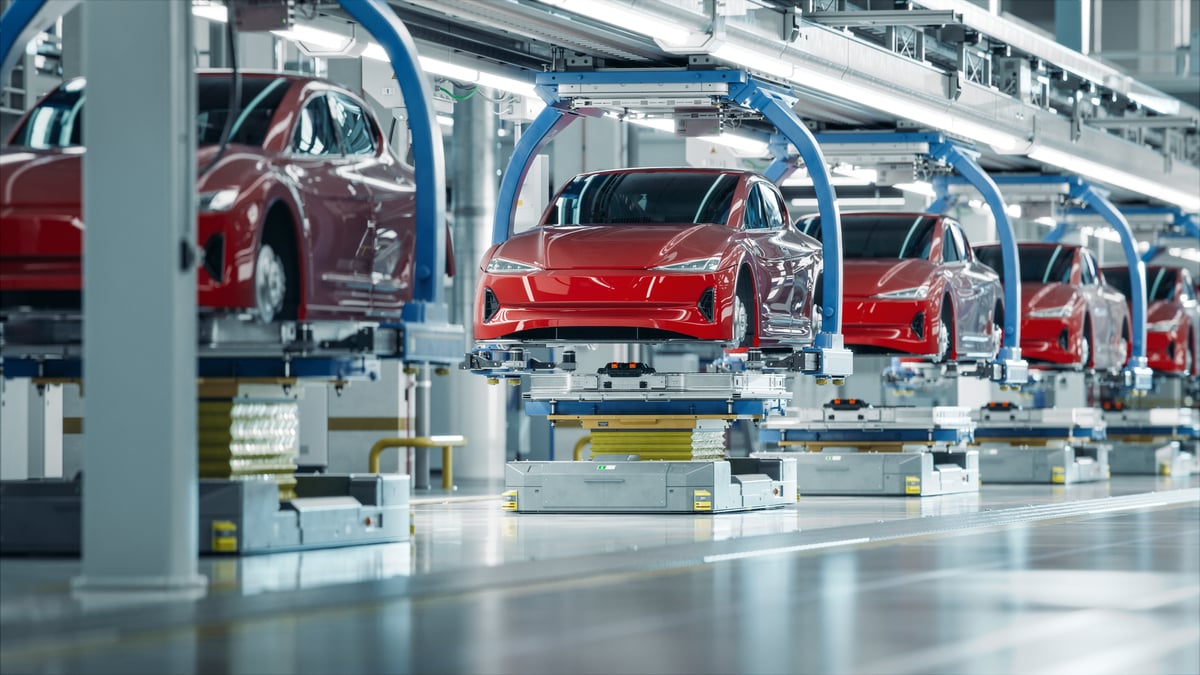Lucid (LCID 0.09%) has always been an intriguing stock. The company arguably has the best vehicle technology in the U.S. EV industry, has been on a roll increasing deliveries each quarter, and just inked a potentially massive deal with Uber Technologies. So if Lucid has so much momentum, why is the stock down 30% in 2025?
From the top ropes!
Out of nowhere, the conversation around autonomous driving and robotaxi service isn't regarding Tesla or Waymo, but instead an often overlooked electric vehicle (EV) maker, Lucid. That's because a couple of weeks ago news broke that ride-hailing platform Uber Technologies would partner with Lucid to launch a robotaxi service later next year in a major U.S. city, combining integral parts from Nuro, Uber, and Lucid.
Uber is targeting to deploy 20,000 or more Lucid vehicles equipped with the Nuro Driver over six years with the first prototype already operating autonomously on a closed circuit at Nuro's Las Vegas track. Even better news is that Uber plans to put its money where its mouth is and is investing in Lucid.
"This investment from Uber further validates Lucid's fully redundant zonal architecture and highly capable platform as ideal for autonomous vehicles, and our industry-leading range and spacious well-appointed interiors, as ideal for ridesharing," Interim CEO Marc Winterhoff said in a press release. "This is the start of our path to extend our innovation and technology leadership into this multi-trillion-dollar market."

Image source: Lucid.
Where art thou, momentum?
There's no question Lucid has momentum behind it with six consecutive quarters of record-breaking vehicle deliveries, culminating in the second quarter of 2025. Add in the fact that Lucid is just now accelerating production of the new Gravity SUV, and there are likely to be more record-breaking quarters in the future.
So with all this momentum in sales, and with a bright partnership with Uber and Nuro, why is Lucid down 30% in 2025? The problem is that Lucid has also been hit with a triple whammy of negative developments.

NASDAQ: LCID
Key Data Points
First, the loss of regulatory credit sales is a big slap to all young EV makers. Essentially EV makers are given credits for producing zero-emission vehicles, whereas automakers producing vehicles that don't meet emissions standards were fined. At the time automakers that needed to offset their lineup of gasoline-powered vehicles simply purchased regulatory credits from EV makers to meet emissions standards. That was until the current administration took away penalties for missing standards, effectively removing any incentive to purchase regulatory credits from manufacturers such as Lucid.
Second, in the world's least kept secret, the $7,500 tax credit is disappearing officially on Sept. 30, which means every qualifying vehicle will be more expensive to purchase in the near term. This is expected to pull forward demand from consumers on the fence about purchasing into the third quarter, also leaving a demand lull in the fourth quarter -- so it's going to be a bumpy end to 2025. It also puts immense pressure on Lucid to accelerate production of the Gravity SUV as soon as possible to take advantage of the boost in third-quarter demand for EVs.
Third, tariffs have been torturous for automakers that need years to carefully plan logistics, distribution, design, and production. It's commonplace for automakers to import parts to be assembled in America -- but these are still hit with tariffs, hurting companies such as Lucid. Tariffs have also caused some bottlenecks in rare earth materials needed for battery production.
What it all means
Lucid has plenty of momentum, and its stock price doesn't seem to reflect that at the moment with slower-than-anticipated EV industry growth in the U.S. market. Lucid has plenty of obstacles in its path and is burning through cash rapidly, but it has the backing of Saudi Arabia's Public Investment Fund, an excellent product, and momentum going into the back half of 2025. Things should start looking up for Lucid investors.







